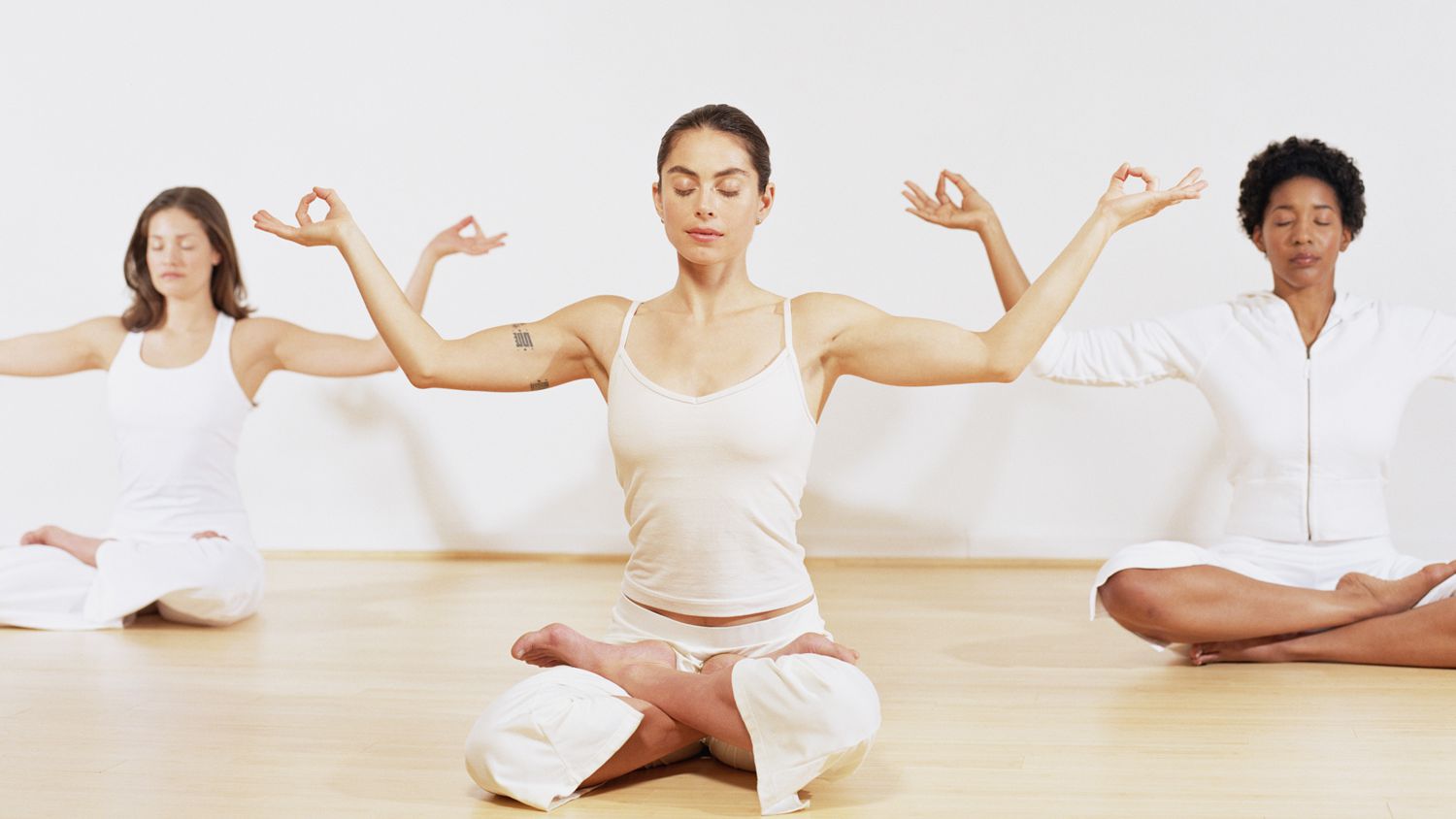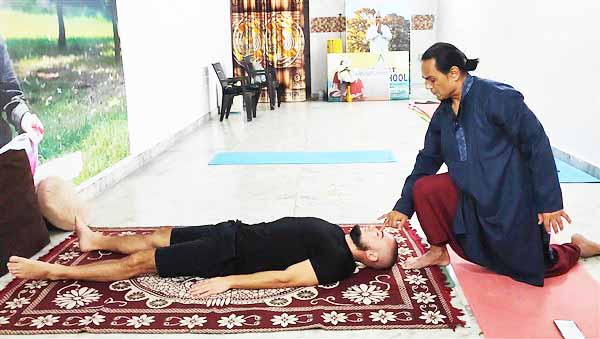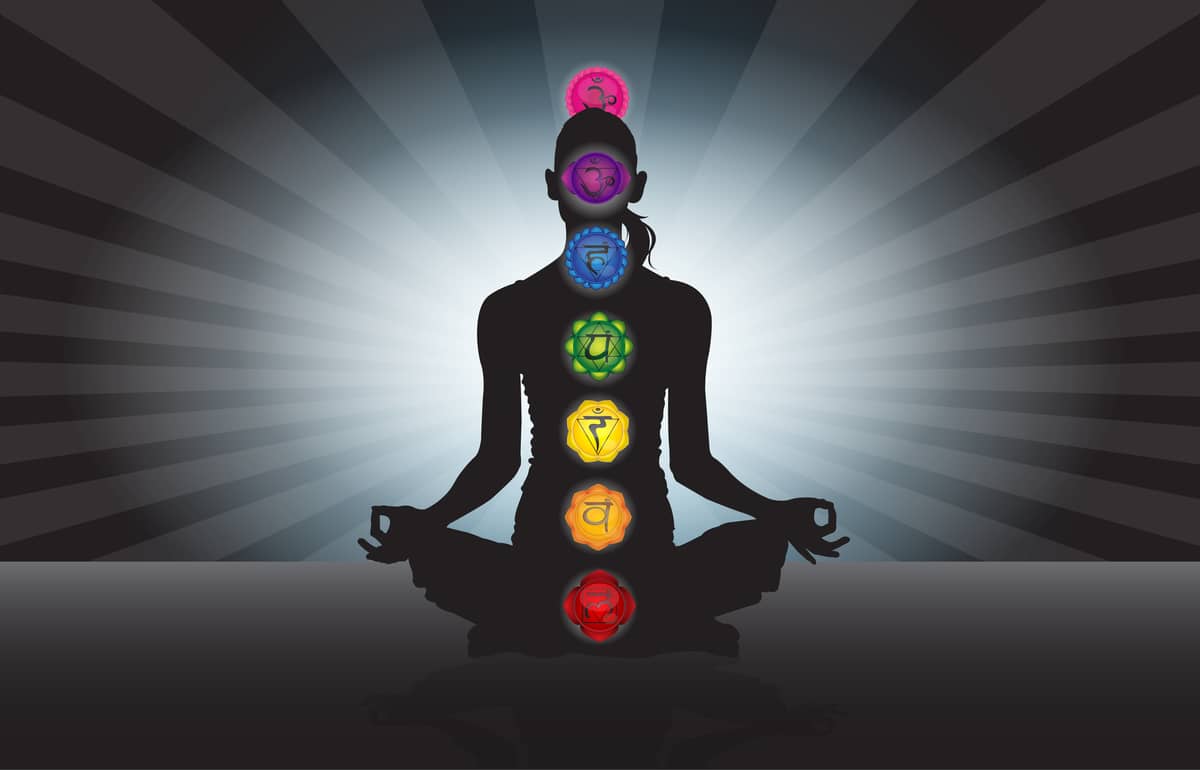If you’re looking for a way to improve your immune system and boost your brain’s health, try yoga. The following are some of the benefits of yoga for mental fitness. Also, find out how to release stress and build self-awareness. There are a number of breathing techniques you can use to boost your mental fitness. Let’s take a look! Listed below are a few of the most important ones.
Importance of yoga in improving immunity
The importance of yoga in improving immunity can be attributed to its physical benefits. The bending of the torso, known as the ‘pranayama,’ strengthens the spine and increases circulation in the respiratory system. It also helps the body to fight infections and daily common illnesses. Regular practice of yoga improves immunity and reduces stress. It is also beneficial for mental health as it helps the body reduce the symptoms of anxiety and depression.

The breathing patterns of people who practice yoga are conducive to improved immunity. The breathing patterns of yoga practitioners help the thymus glands to produce antibodies. The immune system is also strengthened by pranayama and meditation practices. According to Bill Kraftsow, who wrote the book ‘Yoga for Wellness,’ breathing irregularities can cause an individual’s immune system to deteriorate. Yoga postures increase the body’s resistance to preying organisms.
Importance of yoga in stimulating brain function
One study conducted on 30 people revealed that practicing yoga for 20 minutes a day improved cognitive capabilities. It also found that the brain tissue in the participants who had participated in yoga performed better on a variety of cognitive tests. This proves that yoga can significantly improve mental fitness, and that just a few minutes of yoga or meditation a day can boost cognitive power and memory. It also has the ability to protect the brain from the damaging effects of chronic inflammation.
In a meta-analysis of research on the effects of yoga on brain structure, researchers found that these effects were similar to those seen in the aerobic exercise-cognition literature. However, these differences may be due to the complex nature of the brain. Individual differences in strategizing and the design of studies may influence these findings. Still, overall, the findings suggest that yoga has positive effects on brain structure and function.
Benefits of yoga and meditation to releasing stress
Studies have shown that yoga can improve both physical and mental fitness. While running and weight lifting can help you lose weight, yoga also improves your cardiovascular fitness and releases stress. Studies have shown that yoga has many health benefits, including lower blood pressure, improved breathing and reduced stress. It may even improve your memory. But before you decide to try yoga, make sure to consult a medical professional. Listed below are some of the benefits of yoga.

A person suffering from anxiety or depression may become disconnected from their body. They may be physically and mentally exhausted, unable to realize the tension and pain that their bodies are carrying. Yoga practices help individuals reconnect with their bodies, slowing their heart rate and deepening their sense of self. Many people feel physically tired after yoga, which grounds them in their bodies. This can improve a person’s overall health and quality of life.
Benefits of yoga in improving self-awareness
The physical benefits of yoga are not the only benefits you should expect to see from this form of exercise. By focusing on breathing and meditation, yoga promotes mental clarity. Self-awareness helps you identify and avoid addictive behaviours. Studies have shown that our perception of pain is linked to the way we feel. Self-control decreases sensitivity to pain. As a result, yoga can make us feel better and be more productive.

Researchers have shown that yoga has several benefits. For example, it lowers stress and anxiety and releases happy hormones. It also increases the size of our hippocampus and somatosensory cortex, the brain areas that regulate anxiety and body awareness. It also increases our sense of focus, grounding us in our bodies. Yoga is a powerful way to cultivate self-awareness.
What Are the Differences Between Yoga and Meditation?
YOGA and meditation both require a strong level of concentration and focus. While they are both beneficial to your mental health, they do differ in some aspects. Yoga aims to relax the mind, and meditation focuses on bringing the mind into its natural state of awareness. Here’s a look at some of the key differences between the two. YOGA meditation aims to cultivate a deeper awareness of the world.

YOGA meditation involves resting your mind in its natural state of awareness
As you sit down to do YOGA meditation, take some time to scan your body. Take note of any tension or discomfort in various parts of your body. Also note how relaxed your body feels in specific places. If your mind begins to wander, notice it and gently guide your focus back to your breathing. Try to stay as relaxed as possible. This meditation will help you clear your mind of thoughts and improve your concentration.
You may want to begin by observing your breath. Pay attention to the length, frequency, and quality of your breath. If you find that your mind wanders to other things during meditation, try counting your breaths from one to ten. You can also practice guided meditation by focusing on a tone. As you practice, your mind will gradually become more aware of your breathing
They both require concentration and focus
Although they may be different, yoga and meditation do have some similarities. These disciplines require focus and concentration, which is crucial for both. Regular practice of both can enhance your performance at work. As both yoga and meditation focus on mindful breathing, they are great ways to maintain focus and energy. They also relieve stress and improve your overall well-being. The benefits of meditation and yoga may be similar, but there is no scientific evidence to support this.

Concentration is an act of focusing your mind on one object. It has a start and an end. However, if the desired result is not achieved, you may become exhausted and frustrated. In contrast, meditation involves a state of mind that is free of distractions. While meditation requires a higher level of concentration than yoga, it does not require the use of mantras or other forms of repetition.
Yoga and Meditation improve mental health
Research has shown that yoga and meditation can improve the mental state of people suffering from insomnia, depression, and other common mental conditions. In particular, yoga encourages conscious action and allows people to suspend the fluctuations in their minds. As a result, these practices have a positive impact on the quality of life and the reduction of suffering. In addition, yoga has been proven to be effective in treating chronic conditions such as stress, anxiety, and depression.
According to studies, yoga can significantly reduce symptoms of PTSD, especially for women. The study found that 52 percent of women who practiced yoga no longer met the criteria for PTSD, compared to only 21 percent of the women in the control group. Studies have also shown that meditation and yoga improves the function of the brain, increasing levels of neurotransmitters associated with optimism and well-being. Further, meditation has been shown to reduce the activity of the limbic system, leading to a more tempered response to stressful situations.
Ypga and Meditation are not mutually exclusive
The practice of yoga involves the practice of many different spiritual practices. The word ‘yoga’ encompasses a vast array of precepts, attitudes, and values developed over centuries in India. Essentially, it focuses on purifying the mind and heart in order to realize our true Divine nature. While some people may consider these practices to be incompatible, these disciplines have many commonalities, and some techniques are better suited to a particular person’s lifestyle.

The physical practice of yoga helps the embodied soul realize its true nature, which is the same as its Atman. This realization leads to an elimination of the false identification of the soul with the body – the bondage of the jivatman, or jivatman’s ego – and enables the soul to become one with God. This realization is a key step in the process of Self-realization, which is the ultimate goal of meditation.
You can get proper training of Yoga, to learn and apply the Yoga techniques. To know about our Yoga training programs, please visit our following webpage.








